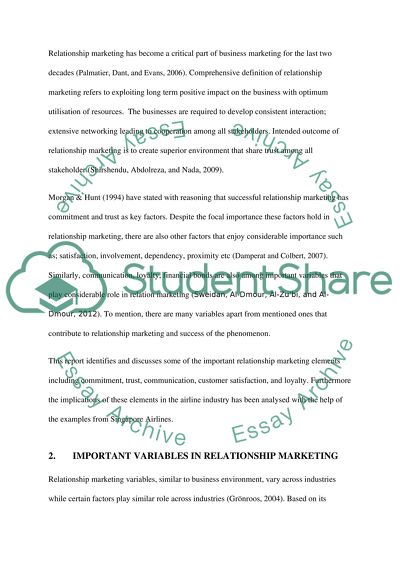Cite this document
(“IMPORTANCE OF RELATIONSHIP MARKETING Essay Example | Topics and Well Written Essays - 1750 words”, n.d.)
Retrieved from https://studentshare.org/marketing/1466049-importance-of-relationship-marketing
Retrieved from https://studentshare.org/marketing/1466049-importance-of-relationship-marketing
(IMPORTANCE OF RELATIONSHIP MARKETING Essay Example | Topics and Well Written Essays - 1750 Words)
https://studentshare.org/marketing/1466049-importance-of-relationship-marketing.
https://studentshare.org/marketing/1466049-importance-of-relationship-marketing.
“IMPORTANCE OF RELATIONSHIP MARKETING Essay Example | Topics and Well Written Essays - 1750 Words”, n.d. https://studentshare.org/marketing/1466049-importance-of-relationship-marketing.


